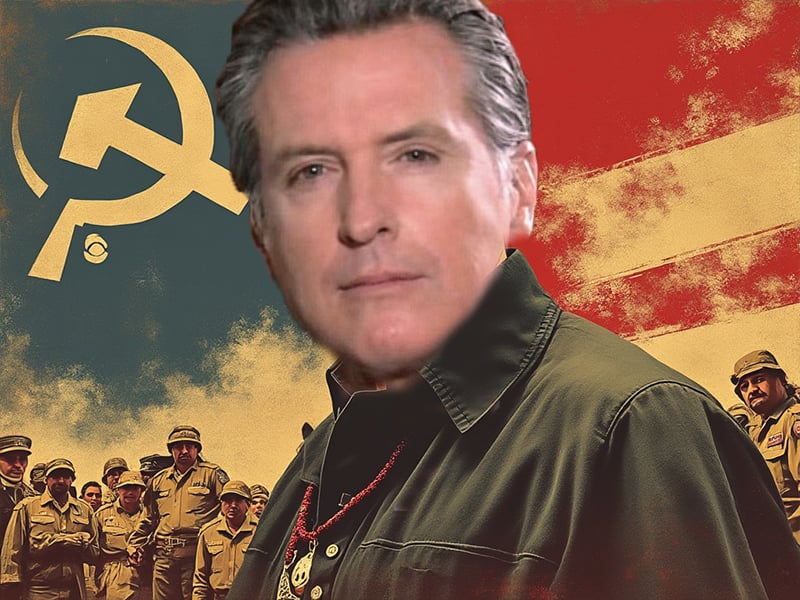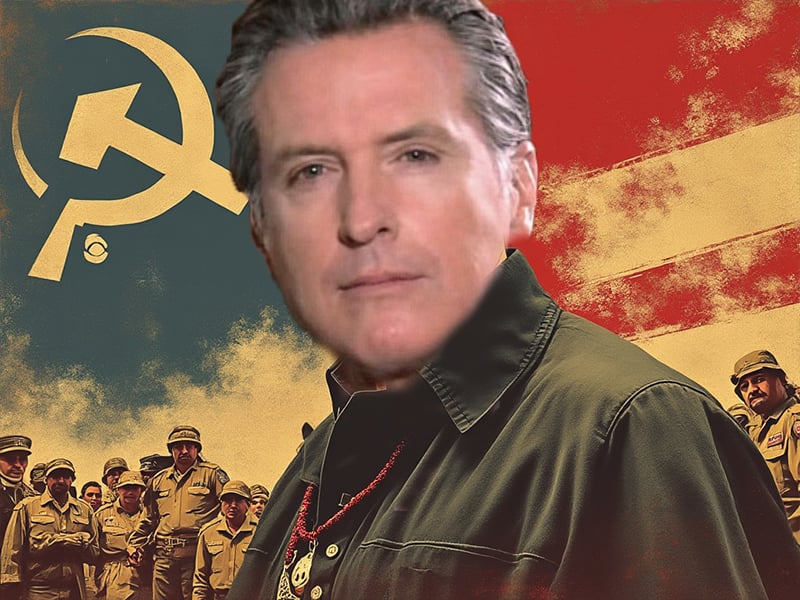
California has just passed a set of laws that Governor Gavin Newsom claims will protect the integrity of elections by combating AI-generated “deepfakes” and deceptive content online. But beneath the surface of this feel-good, democracy-saving headline lies a dangerous trend: the state is inching closer to curbing free speech, humor, and even the beloved art of meme-making. Yes, you read that right—your favorite political memes could be collateral damage in the state’s latest crusade to “protect democracy.”
Let’s be real: the internet has always been a chaotic, hilarious, and sometimes ridiculous space where people express their political frustrations through jokes, satire, and memes. From clever Photoshops of politicians to viral videos that make fun of campaign ads, humor has long played a central role in how we cope with the absurdity of modern politics. Now, California is looking to slap labels on anything they deem “deceptively altered,” and while deepfake technology may indeed pose some risks, these new laws open the door to much broader censorship.
Under Assembly Bill 2655, large online platforms will be required to remove or label any deceptive or digitally altered content related to elections. On the surface, this sounds fine—no one wants to see voters misled by hyper-realistic fake videos. But here’s the kicker: who decides what’s deceptive? The legislation leaves this in the hands of the platforms themselves, which already have a shaky track record of fair moderation. How many memes or satirical pieces will be swept up in the hysteria over “misleading” content? Will platforms err on the side of censorship to avoid getting sued? Probably.
In a digital age where content is constantly shared, reshaped, and meme-ified, it’s nearly impossible to draw a clear line between harmless satire and something malicious. What if a meme poking fun at a politician gets flagged because someone (or some AI algorithm) decides it’s “deceptively altered”? Will the internet’s infamous ability to create viral political humor now be stifled under the guise of election protection?
Let’s not forget Assembly Bill 2355, which mandates that any AI-altered election ads must include a disclosure that the content has been modified. Sounds fair, right? But again, this will likely create confusion about what constitutes “AI-altered” content. Today’s meme culture often involves altering images, video, and audio in ways that aren’t intended to deceive but to entertain, criticize, or provide political commentary. The danger lies in blurring the line between clever satire and what lawmakers deem as dangerous manipulation.
We also can’t ignore the chilling effect this will have on humor. In an era where political jokes and memes are often a vital tool for social commentary, forcing creators to slap disclaimers on their work—because it includes some AI touch-up or video editing—puts a damper on free expression. Imagine watching a meme that makes fun of a politician with a giant “This image has been altered” tag slapped across it, ruining the punchline.
And if you think this is only about deepfakes, think again. California has a history of pushing the envelope when it comes to regulating speech under the guise of protecting the public. The new deepfake bills claim to target only election-related content, but they also represent a broader, troubling pattern: the desire to tightly control the narrative and prevent any form of dissent, satire, or humor that strays too far from what the government deems acceptable.
What’s even more concerning is how these laws could be weaponized during highly charged political moments. The 2024 election is looming, and you can bet that both sides of the political aisle will be scrutinizing every meme, video, and piece of content that pops up online. By giving politicians and online platforms the power to censor or label content as “misleading,” California may have just handed a tool to anyone who wants to stifle the opposition.
Governor Newsom might argue that these laws are meant to “foster transparent and trustworthy AI,” but the reality is that they have far-reaching implications beyond deepfakes. Humor, satire, and memes are core elements of political free speech, and there’s a risk that these new rules could chip away at that. Yes, we should combat disinformation, but not at the cost of silencing legitimate—and often hilarious—political discourse.
So, if you live in California and love making or sharing memes, be prepared for your next politically charged joke to come with a side of government-approved disclaimers. It’s a sad day when the state becomes the arbiter of humor. Let’s just hope they don’t come after the cat videos next.

